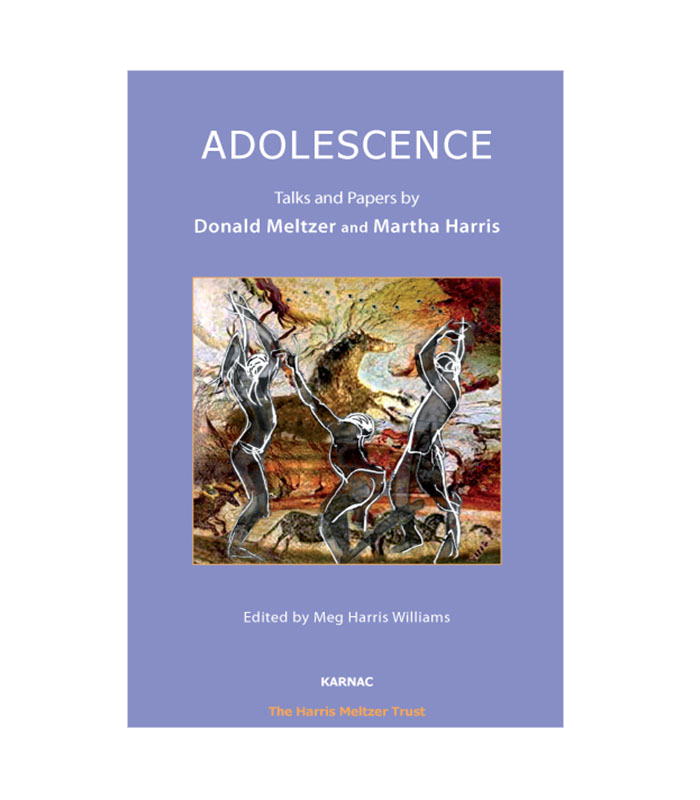This volume contains a representative selection of talks and writings by Martha Harris and Donald Meltzer on the key developmental phase of adolescence, from their teachings both separately and together over many years. Their psychological penetration into this phase or condition transcends changes in culture and environment, focussing on the ‘community of adolescents’ as a state of mind struggling with confusion manifest not only in sexuality but in all aspects of life. This collection includes in many cases the post-talk discussions of the original seminars and is equally relevant to both parents and therapists.





Kenneth Sanders, Fellow of the British Psychoanalytical Society –
‘This newly collected volume of the thought and work of Donald Meltzer and Martha Harris on adolescence is a potent witness to the devotion and enthusiasm with which they pursued their love of the psychoanalytic method and its sympathetic use at this most volatile age. The writing sparkles with wit and vigour and it is a great pleasure to hear again two voices which together express profound scholarship and virtuosic intuition.’
Margot Waddell, psychoanalyst and consultant child psychotherapist –
‘The distinct, yet also conjoined, charisma of Martha Harris and Donald Meltzer sings through these pages. When these papers, lectures and exchanges were written, adolescent life was very different from the contemporary picture. Yet the underlying truths about the nature of human development remain. The pages are vividly evocative of the “condition” of being adolescent. We encounter here the wisdom and essence of the personal and clinical experience that so impressively underpins current practice.’
Ellie Roberts, consultant child psychotherapist –
‘Meltzer referred to this stage of life as the “great combine harvester of adolescence”. in essence: all have to go through it; some find it hard to emerge from it. Theory and clinical material bring alive the political and ethical states of mind of adolescents as they re-evaluate their child knowledge and understanding. The tension builds through the book, leading from imaginative descriptions of ordinary pubertal states of mind to the destructiveness of perversity. The case discussions in the book provide a master class on technique and clinical understanding.’